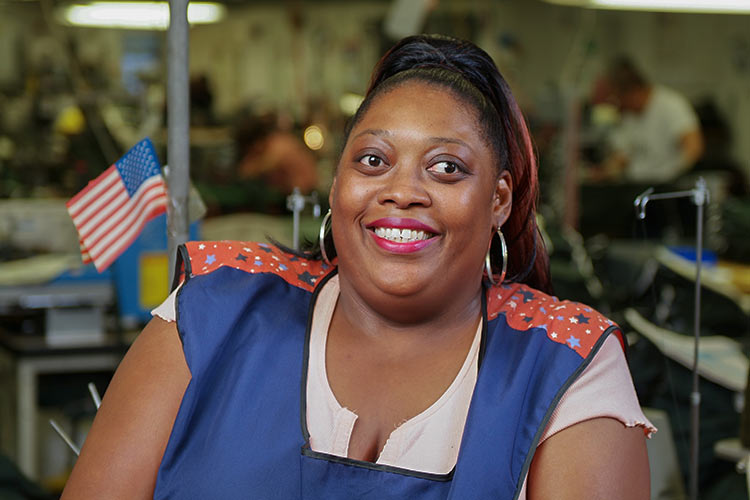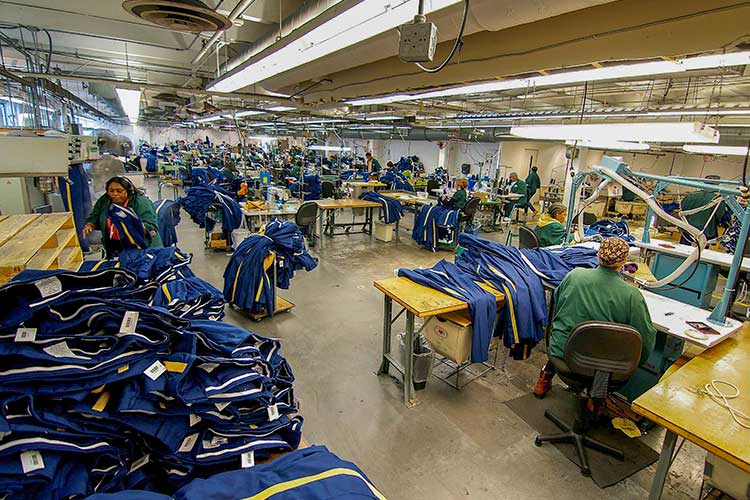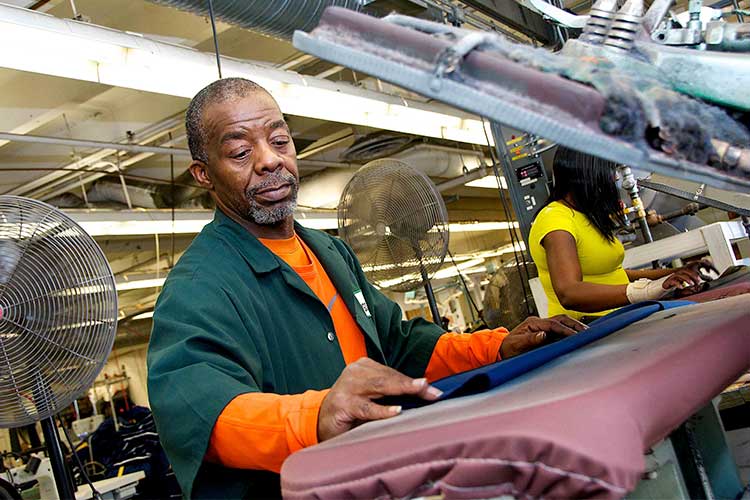Legal blindness doesn't stop this self-taught seamstress from making military uniforms
Barbara Moore has been legally blind her entire life. Born with a condition called nystagmus with cataracts, she has limited vision, but Moore has never let her sight deter her from accomplishing what she set her mind to doing.
In fact, Moore taught herself to sew at an early age. “It was just something I wanted to do,” she recalls. “It was the day after New Year’s 1996 and I wanted to make a comforter. So, I bought a sewing machine and figured out how to sew.”
Moore says she took the measurements of a comforter in a store, then went home with her sewing machine, fabric, a yard stick and chalk and made her own comforter—black with a yin and yang—on the living room floor. She then made curtains, throw pillows, shams, and other goods.
For the past 16 years, Moore has put that knowledge to good use as a seamstress at Vocational Guidance Services (VGS), sewing buttons and buttonholes on women’s military trousers. Moore is just one of a team of 25 people at VGS who make women’s dress trousers for the U.S. Army, Navy, and Marine Corps. The team produces more than 4,000 pairs of pants each month under a government contract VGS has held for more than 20 years.
Founded in 1890, VGS trains and employs people with mental and cognitive disabilities. “We were kind of pioneers for creating rehabilitation programs,” says Sabrina Selinka, general manager of VGS’ power sewing department, of the agency’s history. “Our mission is to prepare people with barriers to employment, and 80 percent of our employees in the sewing department have a significant disability or barrier to employment.”
Selinka says they focus on teaching both job skills and life skills, with most of their employees living independent lives. “Some do choose to move on and find other employment, but the majority stay,” she says. “They are really proud of the work they do and are able to sustain living on their own. Several have worked here for more than 16 years.”
Today, VGS has five locations—including their main campus on East 55th Street (which houses the sewing department and training center), a west side location on Triskett Road, and sites in Painesville, Elyria, and Columbus. In addition to sewing, VGS also offers food and custodial services, as well as other contract work, to its customers.
The main campus has space for up to 170 sewing stations, says Selinka, and the capabilities for a full sewing production line. She explains that the team manufactures the military uniforms in “piece work,” creating up to 500 pairs of pants in one day—from cutting fabric to pressing and boxing the pants. “One pair of pants is split into 30 jobs,” she explains.
But as productive as the sewing team is, Selinka says they have the capacity to take on even more work. She and the management team have been actively looking for additional contracts to train even more employees at VGS. “We’re ready and willing to expand,” Selinka says. “I think my team is fully capable to produce new and different material.”
For her part, Moore is also up for the challenge. “I like the fast pace of it and the teamwork,” she says of her job. “I’m here for the long term.




